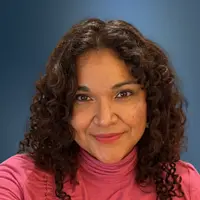
This is the third installment of a 12-part blog series discussing doing evaluation in service of racial equity as part of a collaboration with the Kellogg Foundation. The views expressed here are those of the authors and do not represent the views of any partner organizations, including the Kellogg Foundation.
So often, when organizations are looking to hire an evaluator, they tell us that it is important to have an external, independent perspective that can deliver a credible assessment. To be sure, this is an important role to play as it absolutely matters that we know if a program is effective, how a new initiative is being implemented, to name a few reasons why evaluation is important. The field is also evolving as practitioners heed the call to make evaluation more inclusive and useful to advance social justice. Specifically there is an increasing demand for evaluations to focus on equity as a central dimension of how an evaluation is designed and conducted. One of the most frequently asked questions we get from colleagues and clients with regards to how to center equity in evaluation is, “Where do I start?”
Good news: there are multiple entry points. We often recommend that individuals start by looking within. The act of acknowledging where you come from and how you will fit into an evaluation or research is an important decision point.
Positionality: What is it and How it Affects our Work
RTI's Transformative Research Unit for Equity's (TRUE) framework for equity-centered research and the Kellogg Foundation’s recent practice guides describe how the journey to practice evaluation in service of racial equity starts with identifying how our personal identities relate to the research practice. We must first acknowledge our personal lenses—and work to focus them—before they can be used in service of racial equity or any form of social justice.
Positionality describes “both an individual’s world view and the position they adopt about a research task and its social and political context. Individual world views include views about knowledge, human nature, values, and beliefs, which are shaped by political allegiance, religious faith, gender, sexuality, historical and geographical location, ethnicity, race, social class, and status, and “(dis)abilities... The position adopted in the research refers to how individuals approach the research process given their world view” (Holmes, 2020).
This definition highlights the need to know yourself and the practice of actively deciding what to do with that knowledge (i.e., reflexivity).
How we position ourselves in our work is a tangible tool to center equity in our evaluation and research. Self-awareness is a necessary step that helps us identify our biases. We can strengthen our work by putting in place specific safeguards and plans to manage how we will carry out a project. But the first step starts with our self-knowledge.
Leading with Positioning: Yamanda’s Story
In college, when I first dreamed of becoming a social scientist, I was driven by a desire to feel “seen” by academic research. Sitting in a Psychology 101 course, I had mixed emotions about seminal studies that the professor described as groundbreaking and timeless. On the one hand, I found early psychology experiments fascinating. It appealed to me the way behavioral scientists tried to distill common life experiences to their key components, then draw from those components something universally human and actionable.
In psychologists John Bowlby and Mary Ainsworth’s seminal studies of parental attachment, for example, experimenters would leave infants alone in a room to observe their reactions to being in a strange, unfamiliar place without their mother. When a mother left the room, her child was almost always distraught. Once the mother returned, however, the children’s reactions were varied. Some wept inconsolably, some avoided eye contact and resisted being comforted, and others cycled back and forth or had a disoriented reaction. For the sake of empirical testing, the children’s reactions were categorized along a spectrum of “secure” (or easily comforted) to “insecure,” then used to label the children as having healthy versus unhealthy attachment styles. Bowlby and Ainsworth’s theory was that a child’s earliest lessons about whether their mother is reliable are internalized with stable, lasting effects on the child’s future relationships.
Today, we understand parenting and attachment to be much more nuanced. Caregivers are not always mothers but also parents of all genders, grandparents, siblings, or interconnected networks of family and friends. Individual children are not locked into a secure or insecure attachment style from infancy but instead move through various styles, incorporating insights from each new relationship, their “style” evolving as their relationships evolve. Bowlby and Ainsworth’s initial studies revealed a ton about how infants relate to their caregivers (not to mention gender roles), but our thinking about child development and caregiving has evolved, too, as new and more diverse perspectives are added to the field.
So, on the one hand, I admired the central goal of social science, the noble mission to understand how people operate in order to (presumably) draw conclusions that help us all.
On the other hand, I looked at the experiments being conducted, and at the researchers conducting the experiments, and few of them felt grounded in my reality. Despite decades of research about Black people and other communities of color, it seemed that we were still strangers to the academy, or flat, oversimplified caricatures. I thought, I am a proud descendant of ancestors who have endured slavery, survived centuries of systemic oppression in America and abroad, but those are not the only “variables” to describe me or my lineage. Yet the same deficit-based picture repeated across my introductory courses—also in Art History 101, Introduction to English Literature, even Introduction to Biology, the most basic study of human life. The canons were assumed to be generalizable, to say something universal about us, but the humans empowered to frame the conversation were overwhelmingly white, socioeconomically privileged, and disconnected from the populations they wrote about. I was tired of it. I felt challenged to add my voice to the conversation, and to find a community of researchers who wanted to change flimsy dominant narratives about Black and Brown people.
It has not been a linear journey to situate my own experiences within larger research questions about race and racism like the ones we grapple with in TRUE. For instance, it has been critical for me to acknowledge and continually remind myself that not every Black person has my family or my upbringing, and certainly not my memories, feelings, and beliefs. Still, I believe there is tremendous value in exploring where and how our personal narratives influence our research practice.

Leading with Positionality: Daniela’s Story
My earliest memory of the privilege that comes with working as a researcher dates back to my sophomore year in college. I remember having a conversation with my father one day about my job as a research assistant on a large project where I got the chance to travel and conduct interviews and focus groups. I shared with him how much I enjoyed the interviews, particularly with students, because they were so open about their experiences. I remember sharing how I was excited and nervous about facilitating a focus group, having to manage different personalities and social queues. And, at one point in this conversation, I remember that he interrupted me to ask a question, I have never forgotten this exchange, he asked me, “So, you get paid to talk to people? Is that what the job is?” to which I replied, “Yes, I do.” My father, who at that time had had several types of service jobs and worked in Florida and California fields picking fruit, was amazed at the type of work I got paid to do. That was and continues to be the type of work I do. At the time of the conversation, I remember thinking that yes, it is a wonderful thing that I get to do and make a living. Over time, I have come to appreciate tremendous privilege I have, both in my personal and professional life alongside the multitude of challenges.
As the daughter of immigrant parents who moved to the U.S. to provide our family with more opportunity, my life experiences have been shaped largely by my experiences moving to California as a young girl. Unlike my parents, I had the chance to attend school, earn multiple degrees and now enjoy the privilege of working doing research that I care about deeply. My parents both grew up in rural areas where these opportunities were not an option. It is from them that I get my grounding about what hard work is and what working hard looks like. And I am very clear that opportunities are not there for the taking, even when you spend your life working hard, in jobs that are physically demanding and poorly paid. I do not live in a meritocracy. I grew up in a predominantly Latino immigrant community where all of us had similar financial struggles, and only a handful of us traversed the college-going process as best as we could, not having either parents or a network who could share basic knowledge or share what we could expect.
I was not prepared for the marginalization I experienced in college, where I attended an elite liberal arts college as a first-generation college student, and as one of a handful of students of color on campus. To be sure, my years there were a mix of amazingly positive, formative experiences alongside the reality of being othered and tokenized along class and race lines. It was in college that I learned about social stratification and began to be more self-aware. Early on, my sociology training helped me to name my experiences in a broader social context. Now, education and training afford me the opportunity to partake in shifting research and evaluation practices to be more equitable. All these experiences and my multiple social identities shape who I am as a researcher, the kind of work I see as critical, and my passion for using my professional training to advance social justice.
Knowing Yourself is an Asset for Centering Equity
For evaluators and researchers to be agents of social change, we must remain vigilant about harmful dominant narratives about people of color—and we must affirmatively interrogate those narratives, starting with examining our personal positioning. It is important that this self-reflection happens not only at the beginning of a research project but throughout one’s career. Also important, we should not expect researchers of color to lead our exploration of positioning. Too often the emotional labor of social justice is thrust disproportionately upon researchers who are members of marginalized or minoritized groups themselves.
Centering equity also means that we examine our role(s), the context of the project, and actively work to avoid causing harm when we carry out research or evaluation. Being aware of ourselves helps us empathize with others’ perspectives and recognize that we have different access to resources, influence, and control in a situation. Assessing if our work will benefit others and avoid doing harm (e.g., perpetuating social inequities) starts with acknowledging who we are and what we bring to our work.
We want to hear from you. How does positionality affect your work? Are there ways your personal experiences and perspective positively serve your work? Are there areas of overlap between your personal experience and your research that you will commit to exploring further?

